TV soundtracks made millions for record industry
- Published
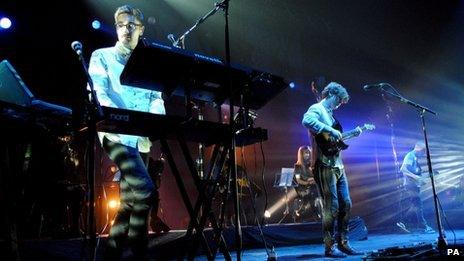
Alt-J have featured on US TV programmes including Weeds and Girls
The amount record labels make from TV shows, films, video games and adverts has jumped by more than 12 percent, says the BPI.
Known as music synchronisation or synch, it can bring in extra money on top of sales and touring.
Recent figures say British acts earned more than £18 million in the last year.
Patrick Hanrahan, a creative sync manager for Sony Music, said that the exposure for new artists can be even more valuable than the fee itself.
"It's additional exposure that the traditional marketing plan might not allow for," he explained.
"The record label will aim for radio, online but not every track can get synced, it is a very competitive market."
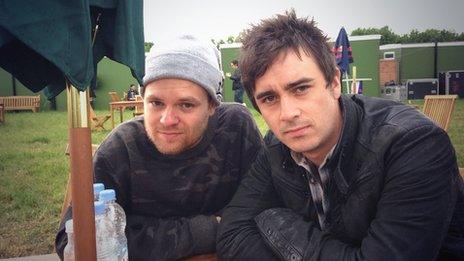
Enter Shikari's Radiate was played out as Andy Murray walked out on court
Enter Shikari tracks have appeared on Antiques Roadshow and Bargain Hunt.
Radiate was the track played when Andy Murray went onto court for the Wimbledon final.
It can be very lucrative for a band and their label but it depends on where the song is being played and how famous the act is.
A virtually unknown group can get about £5000 for an advert whereas the Rolling Stones could ask for millions.
Bastille have appeared in the coverage of The Ashes, while London Grammar have been popular on medical-themed programmes.
"It's been on Fat Surgeons and Failed by the NHS," laughed keyboardist Dan Rothman.
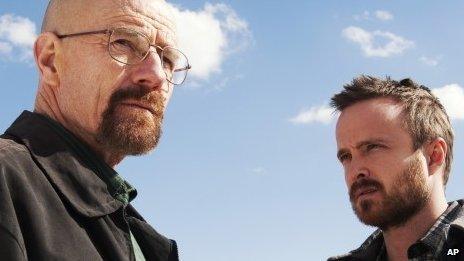
Breaking Bad is one of the most sought-after dramas for music synchronisation
Sync is particularly important when a British act is trying to break the US.
"In America they don't have national radio stations," said Patrick.
"Getting TV syncs over there can be a great way of exposing artists to the music buying public."
The main targets there are the high-profile dramas like Breaking Bad, Gossip Girl or Grey's Anatomy, where bands can earn up to $20m and gain exposure worth far more.
Alt-J have featured on adverts and TV shows in America.
They are currently on tour in the US and have sold out a number of their shows.
"Being on TV programmes we like is pretty cool. We've been on Weeds [and] Girls," explained bassist Gwil Sainsbury.
"I really want to be on The Good Wife and Breaking Bad, that would be pretty cool."
Follow @BBCNewsbeat , externalon Twitter
- Published4 September 2013
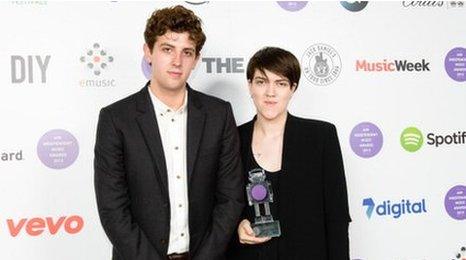
- Published25 August 2013
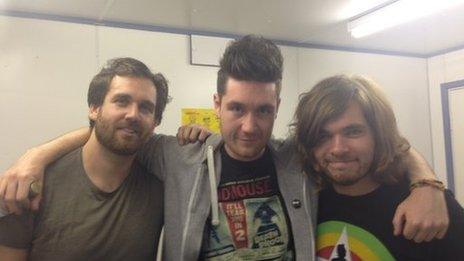
- Published4 June 2013
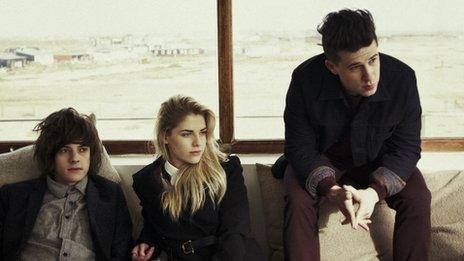
- Published25 February 2013
.jpg)